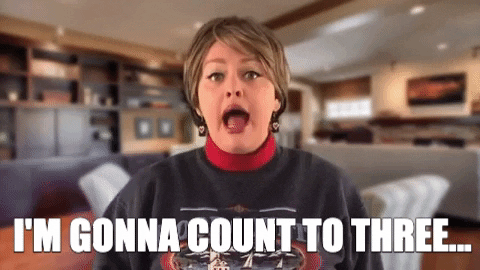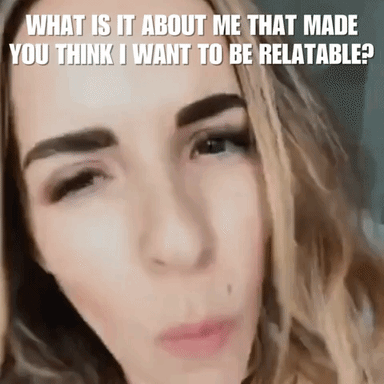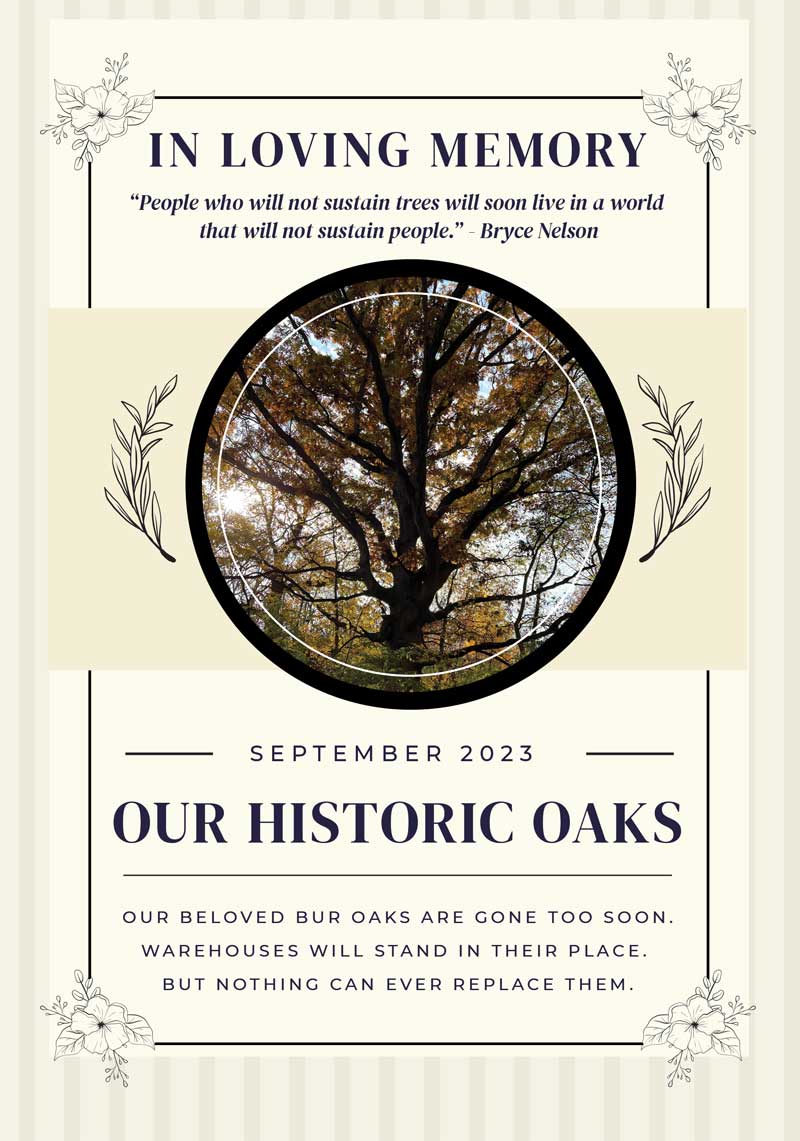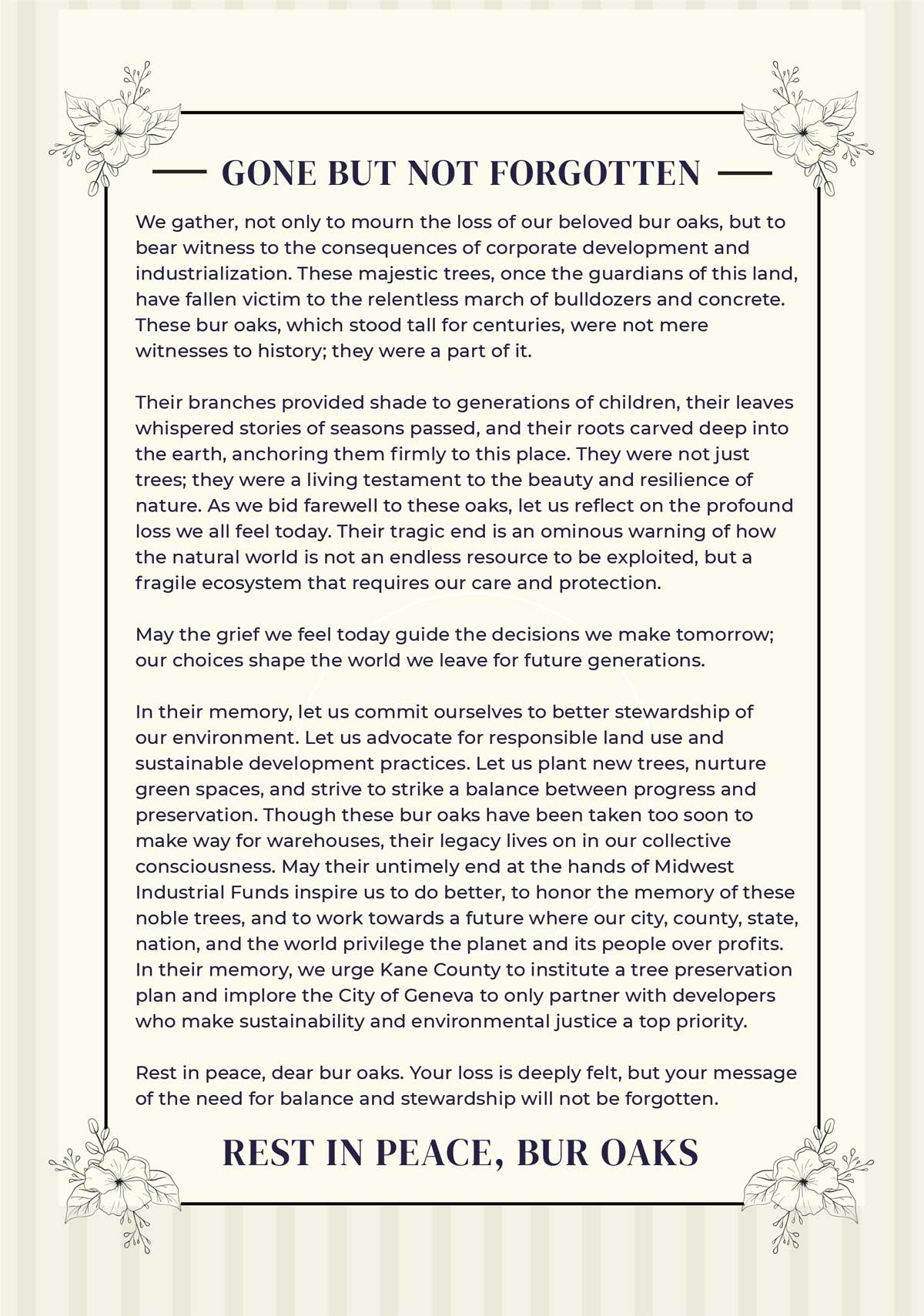This week on Marketing Muckraking, I talk with Molly McPherson, who you may know as the “PR Lady” on TikTok (her followers’ words, not mine.)
I’m not a huge fan of any nickname that involves being the “______ Lady” — but hey! I’m also still making peace with being in the “Ma’am” phase of life, so this is probs projection, right?
Nevertheless, whenever I see Molly tagged as the #PRLady, the narrator in my head says it with a midwestern mom accent.

Whatever you call her, I just know Molly as my first stop when a brand or celebrity is in the news for reasons they’d rather not be.
Molly’s beat is “cancel culture” and she breaks down corporate, celebrity, and personal brand scandals & communications crises from a public relations perspective, with a perfect blend of snark and heart.
But before I tell you more about the interview (which you can listen to here) a little update on a corporate scandal/communications crisis I’ve been involved with here in Illinois…
This summer, I’ve been organizing locally to save an old growth forest of 300+ year old bur oak trees from a warehouse developer that wants to, in the words of Joni Mitchell, “pave paradise and put up a parking lot.” (I’m embarrassed to admit that my introduction to this song, “Big Yellow Taxi,” was the Amy Grant cover my sixth grade youth group blasted on the speakers while we played “Poop Deck.”)
Deep down, I knew how this would likely end.
I didn’t care.
Or at least, I thought I didn’t.
In my twenties, I volunteered with several Chicago eco-justice organizations working on affordable housing and green retrofits, and it gave me my first taste of the reality of activism.
Much like the reality of building a business, most organizing is slow, grueling, often boring, and full of defeat.
To “organize” is to meet with many people — community members, stakeholders, government bureaucrats — and try to come together and/or convince each other to take action in various ways.
This means navigating long meetings, difficult personalities (present company included — hiiiii!), lots of paperwork and Google docs, and doing things that can leave you feeling like you’re doing nothing.
When I see Instagram activists with axes to grind berating their audiences for “not doing the work,” it often baffles me because, uh, how do they know?
Activism is a slow, arduous process and most of it happens quietly, behind the scenes, without fanfare or obvious victories. The community organizers in your neck of the woods probably never make the news. And when they do — it’s typically after years of thankless slog and, many times, it’s because they’re about to face defeat. (The media loves a David vs. Goliath story, even when David is ultimately doomed.)
“The work” of making change in a community, an organization, or an industry (or, honestly, even within oneself) is the result of many, many people making many, many imperceptible moves many, many times.
Going back to my interview with Molly, I think this reality of activism can help explain some of the allure of “cancel culture” — or viral PR crises — that happen when a group of people on social media come together to demand accountability from someone (or something) causing harm.
There are few forms of activism or organizing that yield such immediate impact (or the illusion of it).
People tend to write off “cancel culture” as nothing more than bullying or “mob mentality” but I find this too reductive. Yes, the Internet does make it all too easy to quickly scale a smear campaign.
But, when you look at the reality of the slow slog of activism alongside the urgency of our systemic problems, combined with centuries of silencing the world’s most vulnerable communities…
I think it’s perfectly understandable why, in this moment in history, people eagerly use modern tools to make their voices heard, express deep sorrow and rage, and demand accountability NOW.
Does it work, though?
The answer, on the surface, may seem like a “no.”
On TikTok, Molly analyzes celebrity or CEO “apologies” and then follows up months or years later to see what happened next.
In our interview, I asked Molly for an example of an apology done “right” and she struggled to give me an answer. Most apologies miss the mark. (Because, let’s be real — most are written by publicists to quell a firestorm vs. evidence of any authentic remorse.)
And most of the time, on follow-up, the company or celebrity in question has gone back to their old ways. (You’ll want to listen to the show for Molly’s thoughts on Rachel Hollis, 2.5 years after Toilet Gate.)

And this is often the critique of “cancel culture” — that it doesn’t “work,” so why publicly hold anyone accountable when it’s ultimately a losing game?
Rachel Hollis herself said in an interview last year:
“I feel like if cancel culture was really about caring whether or not the person was learning form their mistakes, it would be one thing, but it’s not. It’s about who can make the comment that gets the most likes or who can say the thing that’s the biggest zinger. That sort of circus that happened was crazy and felt crazy to be inside of, for me.”
(I love watching Molly react to this video and her facial expressions soothe my weary soul.)
The fact that widespread backlash didn’t “change” Rachel’s mind about her years of harmful behavior and that she continues to double down on her position could look like proof that what she’s saying in this interview is true — that “cancel culture” (or, to be more precise in this context, calling for public accountability) doesn’t “work” because it fails to lead people or organizations to meaningful change.
But if we know that activism and changemaking are always a long game — always an accumulation of many, many people making many, many imperceptible moves many, many times…
Then, we simply can’t tie the validity of calling for public accountability (which is just one tool in a changemaker’s belt), to whether it causes an instant 180.
Activism and accountability are not a game you “win” — you can’t hoist the MVP on your shoulders, drizzle your team in milk or champagne, and then fall asleep clutching your change trophy.
Remember…
Many, many people.
Many, many moves.
Many, many times.
Let’s return to my local organizing to save the old oak forest. (And I think you know where I’m going with this… 💔 )
My fellow organizers and I certainly caused a wee communications crisis of our own for our City of Geneva and Midwest Industrial Funds, the development firm actively deforesting our beautiful oaks as I write this today. We demanded public accountability. We made enough waves to make the news.
But, despite our efforts (some of our organizers have been working on this for 5+ years), even gaining press and social media attention, we are not “winning.” We have lost many of our trees. In a few days time, we will likely lose them all.

Does that mean organizing, protest, and direct action — like “cancel culture” — doesn’t “work”?
Does that mean our efforts were in vain?
Does that reduce us to nothing more than an angry mob, “bullying” our city and the sweet, innocent “vertically integrated national real estate investment company” that just wants to put up some warehouses, for the love of capitalism?!?
In the episode with Molly, we discuss the difference between bullies and truth tellers seeking justice and speaking truth to power. And I think this distinction is important.
Yes, of course, the “justice” we sought was principally to save our 300+ year old trees from deforestation. The fact that they have been ground into mulch is an absolute injustice.
But, if activism isn’t a game you “win,” then losing our trees doesn’t equal a total defeat. And it doesn’t mean our efforts were in vain. (Just as Rachel Hollis still not “getting it” doesn’t mean that those who held her publicly accountable 2.5 years ago wasted their words or time.)
Despite the total injustice of our trees being felled, other things happened, too:
- The Geneva City Council was exposed for courting and wooing a developer who meant our community harm and exploited our land for their own profit, all while refusing to respond to hundreds of emails from the local community about our concerns
- Midwest Industrial Funds is in the press and their search results now more explicitly reveal a track record of destroying the environment in the name of greed
- The Kane County Board now has an urgent incentive to institute a tree preservation policy so that future developers cannot so easily invade our cities and clear-cut our remaining trees
- 3,800+ people showed each other support and solidarity (by signing our petition, writing comments, and sharing with their friends and families), which means 3,800+ people felt less alone and isolated in their desire to make the world a better place
Our story can serve as a road map for others facing similar challenges, helping them know better what to do (and not to do) when facing a corporate behemoth who threatens to pave their paradise and put up a parking lot.
Ultimately, our efforts to save the trees, now become part of a longer history of many, many people who made many, many moves many, many times.
In the long trajectory of changemaking, if there weren’t many people making many moves many times, despite facing defeat, many of the advances we now describe as “progress” would never have happened.

This is “the work.” And the hardest part about it — but the most important part to remember — is that, many times, you can’t easily tell if the work “works.” And, if you want to make change, you have to do it, anyway.
So, if I return to my interview with Molly and our conversation about “cancel culture” and celebrity personal brands in PR crises, including Rachel Hollis — to me, the value of public accountability isn’t always, as Rachel said in that TikTok, “whether or not the person [learns] from their mistakes.”
The value is also in:
- Exposing harmful patterns of behavior and putting them on the record so others can protect themselves in the future
- Encouraging people to establish firmer boundaries, pushing industries and organizations to institute protective policies, and creating a sense of urgency for reform
- Establishing a community of solidarity and support, so people harmed by harmful patterns of behavior feel less alone and isolated in their sorrow, rage, and pain
All of those things are a “win,” even when we “lose” in other ways.
“The work” to make the world a better place, just like “the work” to become better people, is never truly done.
If we can prepare our hearts for this reality, it can help us to keep working together, regardless of whether or not the many things we do many, many times “work” or not.
Keep going. Keep fighting. Keep speaking truth to power.
Many, many times.
With much, much love,
Rachael
If you liked this, read on:
In many ways, it seems easier to become a “personal brand” version of yourself than to be yourself. Brands are built on simplicity. A “good”…
Read More...Rebrand TOO MUCH to SO MUCH. Instead of saying, “She’s TOO MUCH,” say, “She’s SO MUCH.” You’re welcome. Lessons on burning it all down…
Read More...In 2021, I started a business / art experiment called FREE SCHOOL. I didn’t know at the time that this school would teach me to free myself. What happens after you burn it all down?
Read More...

